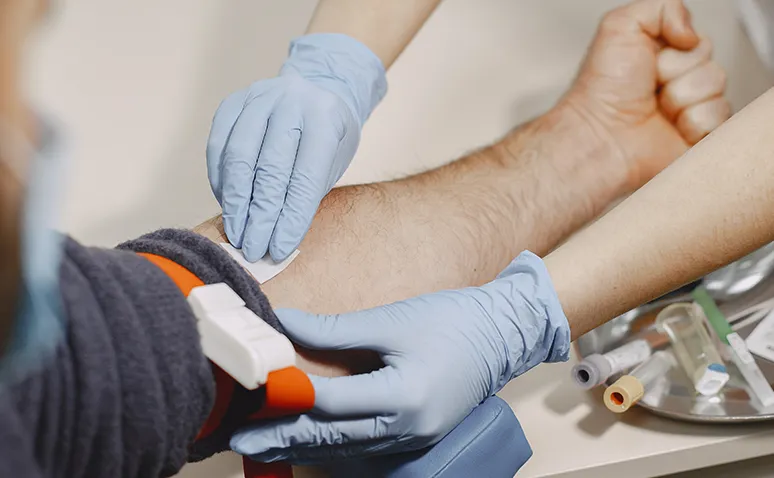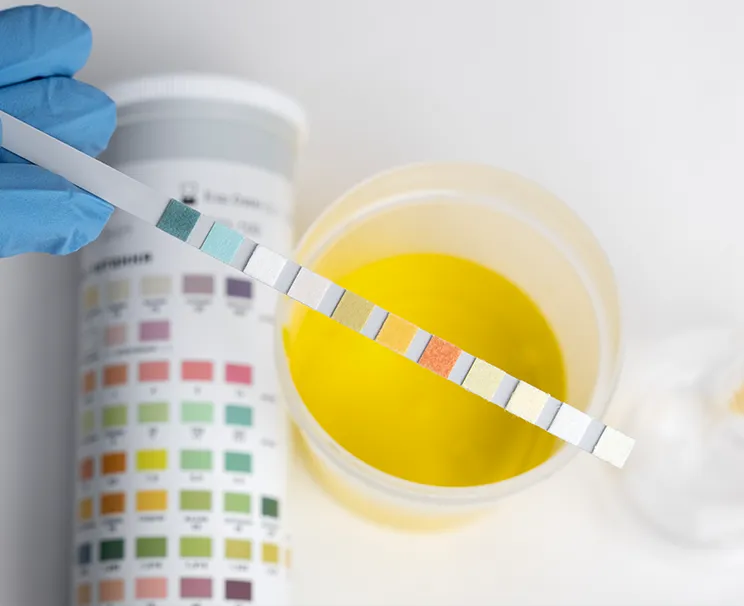Complete blood count is a basic laboratory test conducted to evaluate the number and ratios of cell components in the blood. This test helps in the early diagnosis of various conditions, ranging from infections to anemia.
Complete blood count results allow the doctor to thoroughly analyze the patient’s overall health status. The levels of cell types such as erythrocytes, leukocytes, and platelets play a critical role in diagnosing various diseases and tracking the progress of treatment. This test is frequently requested as part of routine health check-ups.
Where Is Complete Blood Count Performed?
Complete blood count is one of the key laboratory tests that play a critical role in the early diagnosis of many diseases. This test can be performed in the biochemistry or hematology laboratories of hospitals, private medical centers, or family health centers. In this test, the levels of different types of blood cells are analyzed in detail.
The blood sample is usually taken in the morning on an empty stomach and sent for evaluation. The procedure is completed in a short time, and it is possible to obtain the test results within a few hours. The obtained data contribute to the assessment of an individual’s overall health condition. It is particularly important for identifying the source of certain symptoms and complaints.
It is recommended to perform a complete blood count in the following cases:

The results are evaluated based on reference ranges determined according to the individual’s age and gender. Abnormal values may indicate a potential underlying health problem. Therefore, they should be interpreted by specialist doctors and, if necessary, supported with advanced tests.
Complete blood count is a reliable examination method applicable to individuals of all ages, from children to the elderly. The test is extremely simple to perform, requiring only a single tube of blood. The data obtained from the hemogram test provide valuable insights into the body’s immune system and oxygen-carrying capacity. In this respect, it has become an indispensable part of routine check-ups.
Thanks to the test, many biological changes in the body can be detected early. The widespread accessibility of this test offers a significant advantage for public health.
How Is Complete Blood Count Reported?
Once the hemogram test is completed, the results are usually presented to the patient either electronically or in a printed document. This report contains the quantities and ratios of various blood cells. Next to each value, the reference ranges based on age and gender are listed, making it easy to determine whether the values are within normal limits.
The first part of the report lists data related to red blood cells, i.e., erythrocytes. Here, measurements such as hemoglobin, hematocrit, and MCV are included. Then, white blood cells are evaluated, and the percentage distribution of subtypes such as neutrophils and lymphocytes is indicated. Finally, parameters like platelet levels and mean platelet volume are provided.
The findings are examined in detail by the physician and interpreted in relation to the clinical picture. If there are abnormal findings, they may be indicative of certain diseases. For example, elevated white blood cell counts may suggest the possibility of an infection. In such cases, it is recommended to support the diagnosis with further investigations. In this sense, the hemogram report is not just a list of numbers but an analysis offering clues about one’s health status.
Frequently Asked Questions
This test examines the count, ratio, and characteristics of cells such as red blood cells, white blood cells, and platelets.
Extremely low or high hemoglobin, leukocyte, and platelet values can be signs of a serious health condition.
Many parameters such as hemoglobin level, white blood cell ratio, hematocrit, MCV, MCH, and platelet count are reported.
Although it varies by patient, values like hemoglobin, leukocyte, hematocrit, and CRP are generally assessed carefully.
Anemia, infection, leukemia, clotting disorders, and some immune system diseases can be identified with this test.
Although the hemogram may provide hints in some types of cancer, definitive diagnosis requires tumor markers and advanced imaging.
You can immediately contact Denge Tıp to evaluate your complete blood count results with our expert team.











